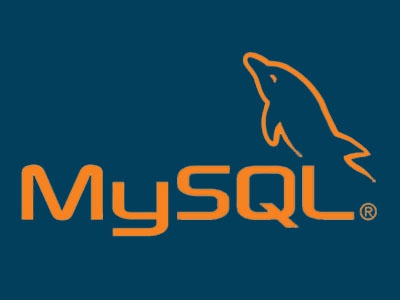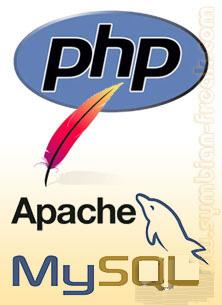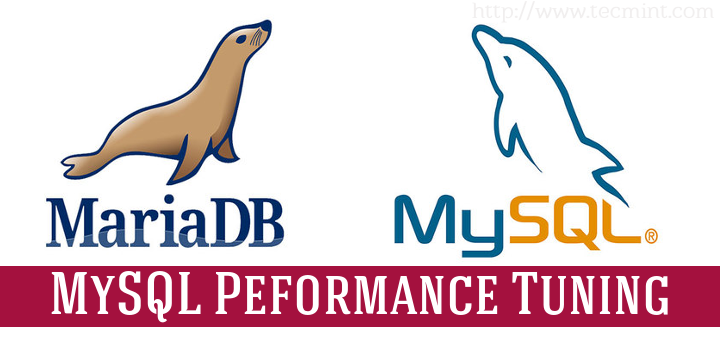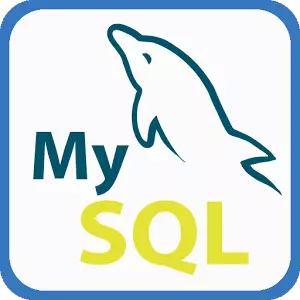10 recommended courses for advanced mysql
Performance optimization index The index points to a location in the database where specific data is located. Creating an index on the column can arrange the information on the column. When the server needs to access this information for a query, it will know where to look because the index points to the relevant location. If a column is involved in querying, grouping, and sorting, the index will improve performance. Indexes with many duplicate values will not produce good results. You can use tables to join multiple non-unique indexes to improve performance. The more indexes, the better the performance is not necessarily. Adding an index does not necessarily improve performance. Query cache When running a select query, MySQL4.x will record the query and return results. This is accomplished by saving the result set in a special cache each time a select query is made. Then, when the server is asked to do the same query again, MySQL will retrieve the results from the cache rather than running the query again. This feature is enabled by default. Note that once a table changes, cached queries using this table become invalid and will be removed from the cache. This prevents queries from returning inaccurate data from the old table. Often
1. In-depth understanding of MySQL Advanced Drifting (6)

Introduction: Performance optimization index index points to a location in the database where specific data is located. Colleagues create an index on the column to arrange the information on the column. When the server needs to access this information for a query, it will know where to look because the index points to the relevant location. If a column is involved in querying, grouping, and sorting, the index will improve performance. Indexes with many duplicate values will not produce good results. You can use tables to join multiple non-unique indexes to improve performance. The more indexes, the better the performance is not necessarily. Adding an index does not necessarily improve performance.
2. In-depth understanding of MySQL Advanced Drifting (V)

## Introduction: Transaction What is a transaction? A transaction consists of one or more SQL statements as a single unit. Each SQL statement in this unit is interdependent, and the unit as a whole is indivisible. If a statement in the unit cannot complete successfully, the entire unit will be rolled back and all affected data will be returned to the state before the transaction started. Therefore, only when all statements in the transaction are successfully executed can the transaction be said to be successfully executed. Four characteristics of transactions: Atomicity, each transaction must be considered an indivisible unit. Consistent
3. In-depth understanding of MySQL Advanced Drifting (4)

Introduction: Join Cross Join The simplest type of join is a cross join, which involves multiplying the tables to create an all-encompassing product. Example: select * from student,person;//The result is a combination of the two tables. All columns of the two tables are combined to produce a result set containing all possible combinations. This type is called a cross join, and the number of rows in the resulting table after the join is the same multiplied by the number of rows in each table used for the join. The above cross-connection will have a great impact on the performance of the database server, so use
4 in the connection. In-depth understanding of MySQL Advanced Wanderings (3)

Introduction: Function mathematics function requirements: 1) The absolute value of -123; 2) 100,88, 33,156 takes the maximum value; Aggregation function MySQL has a set of functions that are specially designed for summation or centralized summary of data in the table. These functions are often used in select queries containing group by clauses. Of course, they can also be used for Query without group 1) Among this set of functions, the most commonly used is the COUNT() function, which calculates the number of rows in the result set that contain at least one non-null value select co
5. In-depth understanding of MySQL Advanced Drifting (2)

# Introduction: Operators Arithmetic operators MySQL supports most common arithmetic operators that allow us to perform calculations. "+ (addition), - (subtraction), * (multiplication), / (division, return quotient), % (division, return remainder)", as in the following example: select 1+2; //Addition operation, the result is 3 select 2-1;//Subtraction operation, the result is 1 select 3*2;//Multiplication operation, the result is 6 select 6/2;//Division operation, the result is 3 select 25%7;//Division operation
6. In-depth understanding of MySQL Advanced Drifting (1)

Introduction: Numeric types Numeric types are roughly divided into two categories: one is an integer, and the other is a floating point number or decimal. The commonly used integer type is the int type, and the allowed range is between (-2147483648, 2147483648). Common types of floating point numbers or decimals are: float, double and decimal types. float type (single-precision floating-point value); double type (double-precision floating-point value); decimal type (used in calculations that require very high precision; these types allow the precision and count of the value to be specified
7. Mysql Advanced (Twenty-five) Solve the database NO CONNECTION problem

Introduction: When the application connects to the database, it prompts that the database connection failed. Open the database and view the following. Mysql Advanced (24) Summary of methods to defend against SQL injection
## Introduction: This article mainly explains the methods to defend against SQL injection. It introduces what injection is, what are the reasons for injection, and how to defend against it. Friends who need it can refer to it 
mysql Advanced (Twenty-three) Database Transactions. Four major characteristics
Introduction: The atomicity of a transaction means that the program included in the transaction acts as a database A logical unit of work, the data modification operations it performs are either all performed or not performed at all. 
mysql advanced. (22) MySQL error: Incorrect string value: '\xE7\x81\xAB\xE7\x8B\x90... Incorrect Chinese character input
Introduction: During the experiment, the output parameters need to be written to the database. During the writing process, an error occurred when executing the lab_dynamic_order.upd_upd() statement. I didn’t understand it at first. There is something wrong. I tried to ask Du Niang for help. Some people on the Internet said that it was because of the input of Chinese characters, so I copied the string containing Chinese characters to be written to MySQL, and an Incorrect string value: ' appeared when saving. \xE7\x81\xAB\xE7\x8B\x90...' for column 'tout' at row 1 error message. Then another search, the solution is as follows: 
The above is the detailed content of 10 recommended courses for advanced mysql. For more information, please follow other related articles on the PHP Chinese website!

Hot AI Tools

Undresser.AI Undress
AI-powered app for creating realistic nude photos

AI Clothes Remover
Online AI tool for removing clothes from photos.

Undress AI Tool
Undress images for free

Clothoff.io
AI clothes remover

Video Face Swap
Swap faces in any video effortlessly with our completely free AI face swap tool!

Hot Article

Hot Tools

Notepad++7.3.1
Easy-to-use and free code editor

SublimeText3 Chinese version
Chinese version, very easy to use

Zend Studio 13.0.1
Powerful PHP integrated development environment

Dreamweaver CS6
Visual web development tools

SublimeText3 Mac version
God-level code editing software (SublimeText3)

Hot Topics
 1662
1662
 14
14
 1419
1419
 52
52
 1313
1313
 25
25
 1262
1262
 29
29
 1235
1235
 24
24
 When might a full table scan be faster than using an index in MySQL?
Apr 09, 2025 am 12:05 AM
When might a full table scan be faster than using an index in MySQL?
Apr 09, 2025 am 12:05 AM
Full table scanning may be faster in MySQL than using indexes. Specific cases include: 1) the data volume is small; 2) when the query returns a large amount of data; 3) when the index column is not highly selective; 4) when the complex query. By analyzing query plans, optimizing indexes, avoiding over-index and regularly maintaining tables, you can make the best choices in practical applications.
 Can I install mysql on Windows 7
Apr 08, 2025 pm 03:21 PM
Can I install mysql on Windows 7
Apr 08, 2025 pm 03:21 PM
Yes, MySQL can be installed on Windows 7, and although Microsoft has stopped supporting Windows 7, MySQL is still compatible with it. However, the following points should be noted during the installation process: Download the MySQL installer for Windows. Select the appropriate version of MySQL (community or enterprise). Select the appropriate installation directory and character set during the installation process. Set the root user password and keep it properly. Connect to the database for testing. Note the compatibility and security issues on Windows 7, and it is recommended to upgrade to a supported operating system.
 MySQL: Simple Concepts for Easy Learning
Apr 10, 2025 am 09:29 AM
MySQL: Simple Concepts for Easy Learning
Apr 10, 2025 am 09:29 AM
MySQL is an open source relational database management system. 1) Create database and tables: Use the CREATEDATABASE and CREATETABLE commands. 2) Basic operations: INSERT, UPDATE, DELETE and SELECT. 3) Advanced operations: JOIN, subquery and transaction processing. 4) Debugging skills: Check syntax, data type and permissions. 5) Optimization suggestions: Use indexes, avoid SELECT* and use transactions.
 Can mysql and mariadb coexist
Apr 08, 2025 pm 02:27 PM
Can mysql and mariadb coexist
Apr 08, 2025 pm 02:27 PM
MySQL and MariaDB can coexist, but need to be configured with caution. The key is to allocate different port numbers and data directories to each database, and adjust parameters such as memory allocation and cache size. Connection pooling, application configuration, and version differences also need to be considered and need to be carefully tested and planned to avoid pitfalls. Running two databases simultaneously can cause performance problems in situations where resources are limited.
 Laravel Eloquent ORM in Bangla partial model search)
Apr 08, 2025 pm 02:06 PM
Laravel Eloquent ORM in Bangla partial model search)
Apr 08, 2025 pm 02:06 PM
LaravelEloquent Model Retrieval: Easily obtaining database data EloquentORM provides a concise and easy-to-understand way to operate the database. This article will introduce various Eloquent model search techniques in detail to help you obtain data from the database efficiently. 1. Get all records. Use the all() method to get all records in the database table: useApp\Models\Post;$posts=Post::all(); This will return a collection. You can access data using foreach loop or other collection methods: foreach($postsas$post){echo$post->
 RDS MySQL integration with Redshift zero ETL
Apr 08, 2025 pm 07:06 PM
RDS MySQL integration with Redshift zero ETL
Apr 08, 2025 pm 07:06 PM
Data Integration Simplification: AmazonRDSMySQL and Redshift's zero ETL integration Efficient data integration is at the heart of a data-driven organization. Traditional ETL (extract, convert, load) processes are complex and time-consuming, especially when integrating databases (such as AmazonRDSMySQL) with data warehouses (such as Redshift). However, AWS provides zero ETL integration solutions that have completely changed this situation, providing a simplified, near-real-time solution for data migration from RDSMySQL to Redshift. This article will dive into RDSMySQL zero ETL integration with Redshift, explaining how it works and the advantages it brings to data engineers and developers.
 The relationship between mysql user and database
Apr 08, 2025 pm 07:15 PM
The relationship between mysql user and database
Apr 08, 2025 pm 07:15 PM
In MySQL database, the relationship between the user and the database is defined by permissions and tables. The user has a username and password to access the database. Permissions are granted through the GRANT command, while the table is created by the CREATE TABLE command. To establish a relationship between a user and a database, you need to create a database, create a user, and then grant permissions.
 MySQL: The Ease of Data Management for Beginners
Apr 09, 2025 am 12:07 AM
MySQL: The Ease of Data Management for Beginners
Apr 09, 2025 am 12:07 AM
MySQL is suitable for beginners because it is simple to install, powerful and easy to manage data. 1. Simple installation and configuration, suitable for a variety of operating systems. 2. Support basic operations such as creating databases and tables, inserting, querying, updating and deleting data. 3. Provide advanced functions such as JOIN operations and subqueries. 4. Performance can be improved through indexing, query optimization and table partitioning. 5. Support backup, recovery and security measures to ensure data security and consistency.




